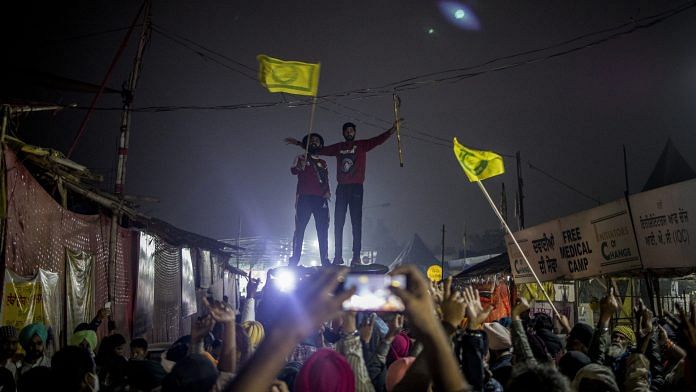
Thank you dear subscribers, we are overwhelmed with your response.
Your Turn is a unique section from ThePrint featuring points of view from its subscribers. If you are a subscriber, have a point of view, please send it to us. If not, do subscribe here: https://theprint.in/
The now-repealed three farm laws would have led the way for a much-needed reform in the agricultural sector. Unfortunately, they will now likely be put aside for another generation. The three laws were the most significant reforms in the sector of agriculture since Independence.
Chief Minister Amarinder Singh had in April 2020 tasked a committee to prepare a post-Covid economic strategy for Punjab, and Montek Singh Ahluwalia had submitted the first part of its report to the government in July 2020. The report concluded that Punjab’s agricultural produce marketing committees (APMCs) were “restrictive” and provided for “high licence fees”. It further suggested that agricultural marketing should move beyond them. The initial segment of the report, named ‘Medium and Long Term Post-Covid Economic Strategy for Punjab: A Multi Sectoral Approach to Building Resilience and Recovery’, made a few different proposals that reflected the three farm laws, reported ThePrint.
The Narendra Modi government’s political reasoning behind the repeal may seem correct since the three farm laws had already been dead when the government had to make its first compromise by putting a hold on its implementation for 18 months. But from a policy perspective, the repeal is a huge setback in the history of India’s agro-economic sector.
The unfortunate part of this repeal is that India’s agriculture is now condemned to be controlled and profited by affluent farmers, dealers and middlemen. Prime Minister Modi, backed by a democratic majority, took the charge of bringing this much-needed reformative law. But now with the political failure of this, no political party will dare to touch this issue for a long period of time.
With this repeal, the Modi government has sentenced poorer farmers to another generation of economic subjugation. This misfortune of farmers will cost them a huge opportunity to completely alter their course of life and make a better living. With this revocation, farmers have lost the opportunity to sell their produce at better costs outside mandis, they are forced back to a period of cost controls with high obstructions to warehousing and they also lose the assurances while dealing with institutions.
Communicating the policy efficiently is as important as the policy itself. If there is anything the Modi government should have done right, other than bringing these reforms, it is building consensus among all parties and interest groups including the opposition.
Politically, the government has set a dangerous precedent. Every time a policy or a democratic decision-making is to be suppressed for political motivations, a sample for the same is given away.
The farmers, the taxpayers and the people of this country have lost because of politics and power overpowering the national Interest and truth of a good policy.
Also read: SubscriberWrites: India’s ‘system’ has failed but illusion of leadership lingers
These pieces are being published as they have been received – they have not been edited/fact-checked by ThePrint.


COMMENTS